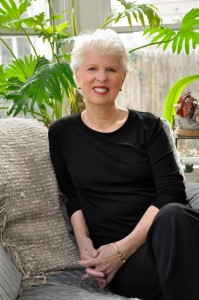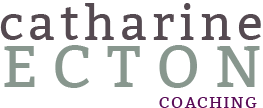 In past blogs I’ve written about what I do, and why it’s important. Today I’m going to take a deep dive into my background and training, and how my journey has informed the deeply satisfying work I do as an enthusiastic, passionate and effective cross-cultural adjustment mentor and life coach in Washington, DC.
In past blogs I’ve written about what I do, and why it’s important. Today I’m going to take a deep dive into my background and training, and how my journey has informed the deeply satisfying work I do as an enthusiastic, passionate and effective cross-cultural adjustment mentor and life coach in Washington, DC.
Cross-Cultural Adjustment: The Early Years
Since 1990, I have been working with groups and individuals who are relocating to the US from overseas, or from the US to an overseas destination. I know how important it is to identify and explore the stages of adjustment because I myself have relocated, both within the US and abroad, over 15 times.
After completing my Master’s Degree in Education (M.Ed.) in the early 1980s, I began my career helping people relocate. I was a consultant at the Department of State, Foreign Service Institute, training groups and families in cross-cultural adaption. I introduced workshop participants to the stages of adjustment and the challenges and rewards they can expect the first few months in a new culture. During this time I was also able to undertake intensive study of Spanish, French, and Japanese languages at the Foreign Service Institute.
In the early 1990s, I worked for the Marymount School in Paris, France training faculty members on ways to introduce and discuss relocation and cultural differences in the classroom. I wrote a curriculum called KIDS ON THE GO for use in international schools that explores cross-cultural adaption issues for youngsters. I worked individually with students on challenges they faced adjusting to a new culture and I spoke with parents identifying the stages of adjustment during their transition. I gave talks to groups on the various stages of cross-cultural adjustment and suggested tools for adaption.
After a move to New Orleans, Hurricane Katrina presented me with opportunities to work with people experiencing profound loss and disorientation. As a consultant and volunteer I gave families support and encouragement and listened to options for moving on emotionally and figuratively, away from the devastation.
My Training & Certification as a Life Coach
I decided to use my experiences and training to create a totally new career as a Life Coach specializing in cross-cultural adjustment. As a lifelong educator, I wanted the best training and coaching credentialing available, so I could in turn offer the best possible service to my clientele. I also made sure I spoke with several Life Coaches I knew and respected to get their take on coaching.
What I learned is that Life Coaching as a profession is relatively new, and at the moment is not regulated. Unfortunately, some folks who coach have not been trained, coached or credentialed themselves. There is no minimum for training or exam that every coach must pass before setting up shop as a professional life coach. Some schools offer programs where you take three hours of training, read a book or watch a TV program. As a result, the quality of coaches vary dramatically. Jennifer Corbin, the president of Coach U, one of the largest and oldest coach training organizations in the world, has said “I strongly suggest working with a coach that has been accredited by the International Coach Federation (ICF). The ICF provides independent certification that is the benchmark for the professional coaching industry.”
I completed life coach training at The Coaches Training Institute (CTI), an organization with a 25-year track record of success whose founders were among the initial pioneers of the life coaching profession. Seven Habits author Stephen Covey praised CTI’s manual Co-Active Coaching, and the organization boasts rigorous and consistent standards for its students. I learned their training methods while participating in classroom work, coaching practicum and teleconference coaching. It complemented my background as a life-long educator perfectly. I was proud to become certified as an Associate Certified Coach (ACC), Certified Professional Co-active Coach (CPCC) after a rigorous multi-day examination.
My Work as a Life Coach
All of these experiences and training inform the work I do today as a life coach for those relocating to the US from overseas, or from the US to an overseas location. I train others to learn to let go of an old community and build a new one with enthusiasm as they adapt to a new culture. I specialize in Relocation Coaching for individuals coming to the US from other cultures, especially Japan. I have a passion for and extensive personal experience with the Japanese community both overseas and in the US. I have helped employees of the World Bank, Foreign Service, International Monetary Fund, residents at the International Student House and other international professionals examine their cultural awareness, personal authenticity, intentions and choice to create and live extraordinarily fulfilling lives. Learn more on my Relocating from Japan page.
Life Coaching and You
Are you crossing the pond? Crossing the country? Changing jobs? Leaving your marriage?
If a change in your circumstances requires leaving your community, letting go of an old identity, making personal changes, giving up your job, language or culture, you are in transition. A change like this can knock you flat – or it can offer an opportunity to develop new parts of yourself. Contact me for guidelines and tools to help you adapt to your new situation and let’s chart a new course together.
